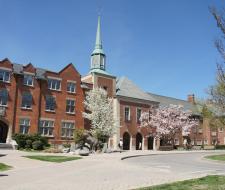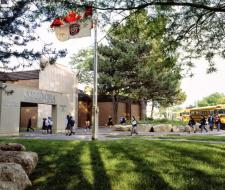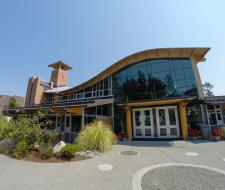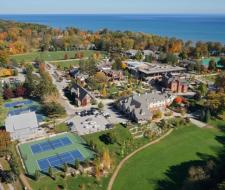Study physics in Canada - 25 institutions
-
 from 3995 $CAD / 2 weeks
from 3995 $CAD / 2 weeks -
 65 sport and clubs in PC's co-curriculum program
65 sport and clubs in PC's co-curriculum program CanadaToronto, OntarioCurrently watching: 7from 475.00 $CAD / week
CanadaToronto, OntarioCurrently watching: 7from 475.00 $CAD / week -
 CIC has more top universities in the partnership program than any other school
CIC has more top universities in the partnership program than any other school CanadaToronto, OntarioCurrently watching: 8from 49400 $CAD / 10 months
CanadaToronto, OntarioCurrently watching: 8from 49400 $CAD / 10 months -
 100 % University placement from each graduating class
100 % University placement from each graduating class CanadaToronto, OntarioCurrently watching: 9from 26200 $CAD / terms
CanadaToronto, OntarioCurrently watching: 9from 26200 $CAD / terms -
 Top Areas of Study in 2023: STEM – 41 % Medical and Health – 12 %
Top Areas of Study in 2023: STEM – 41 % Medical and Health – 12 % CanadaOttawa, OntarioCurrently watching: 9from 4500.00 $CAD / 3 weeks
CanadaOttawa, OntarioCurrently watching: 9from 4500.00 $CAD / 3 weeks -
 This past year, 70% of the graduating class received an offer of admission from their firs
This past year, 70% of the graduating class received an offer of admission from their firs CanadaVictoria, British ColumbiaCurrently watching: 7from 33320 $CAD / terms
CanadaVictoria, British ColumbiaCurrently watching: 7from 33320 $CAD / terms -
 In 2023, 126 graduates received offers of admission from 84 universities in 13 countries
In 2023, 126 graduates received offers of admission from 84 universities in 13 countries CanadaVancouver, British ColumbiaCurrently watching: 7from 1200.00 $CAD / month
CanadaVancouver, British ColumbiaCurrently watching: 7from 1200.00 $CAD / month -
 from 5990.00 $CAD / 4 weeks
from 5990.00 $CAD / 4 weeks -
 from 6800 $CAD / 4 weeks
from 6800 $CAD / 4 weeks -
 100 % University placement from each graduating class
100 % University placement from each graduating class CanadaToronto, OntarioCurrently watching: 9from 437.00 $CAD / week
CanadaToronto, OntarioCurrently watching: 9from 437.00 $CAD / week
Physics is the study of the nature, properties, and relationships between matter and energy, focusing on the analysis and understanding of forces and phenomena—heat, light, sound, magnetism, mechanics, and the structure of atoms. Studying physics at Canadian universities for international students opens up a variety of topics in one of the oldest and most important disciplines in human history.
Physics is the basic building block of modern science. Many of the greatest discoveries—the creation of lasers, transistors, television, radio, computers, magnetic resonance imaging, and other inventions—were made thanks to breakthroughs in physics. These developments and fundamental research are of great importance for human society in a globalized world.
Schools with the study of physics in Canada offer nationally recognized, cutting-edge programs that explore, explain, and study the science behind the problems of everyday life. Professors are researchers on a wide range of topics, they encourage students to participate in all developments in various research groups.
Alternative destinations
Studying Physics in Canada: Structure and Order of Study
Earning a bachelor's degree involves a structured curriculum that directs an individualized curriculum to a chosen subfield of physics. Students take most of the courses in their core subject area, explore the natural world at a fundamental level, and become familiar with the basic physics on which all other sciences and technologies are based.
Studying physics in Canada at a bachelor's degree usually takes 4 years. Teaching is conducted in English and French. Graduates are awarded the following degrees:
- Bachelor of Science in Physics,
- Bachelor of General Science in Physics,
- Bachelor of Science (Hons) in Physics,
- Bachelor of General Science in Earth Sciences.
In the 1st and 2nd years, students undergo:
- Mathematics and computer programming,
- Mechanics, waves, thermal physics, electricity and magnetism,
- Modern physics (including the theory of relativity and quantum theory).
Senior courses gain in-depth knowledge in many areas of modern science, covering a variety of topics:
- Optics
- Statistics
- Electronics
- Astrophysics
- Particle Physics,
- General Physics,
- Nuclear physics
- Atmospheric Physics,
- Applied Physics,
- Engineering Physics,
- Quantum mechanics
- Physical Mechanics,
- Radiation Physics,
- Solid Mechanics.
Studying physics in Canada for international students is an opportunity to pursue a joint degree in physics combined with the following disciplines:
- Chemistry
- Mathematics
- Informatics and others.
In the 4th year of study, students carry out research work under the supervision of a professor, which will allow them to progress to postgraduate study in physics or related fields.
Master's degree: features and advantages
Degrees awarded:
- Master of Physics,
- Master of Science in Physics,
- Master in Physics of Materials and others.
Studying physics at Canadian universities for international students at a master's degree takes an average of 2 years (the full period depends on the previous level of education). The program is usually conducted in English. Students complete the program by writing a dissertation.
Courses may include the following topics (the specific set depends on the specialty):
- Climatology
- Hydrogeology
- Petroleum Geology,
- Chemical Physics,
- Medical Physics,
- Molecular Physics,
- Economic Geology,
- Physical Oceanography,
- Interaction between man and the environment.
Studying physics in Canada is state-of-the-art equipment, research laboratories, teaching facilities, and technical studios for effective master's education.
Doctoral Studies: Opportunities and Directions
Studying physics in Canada for international students in a doctoral program involves:
- 5 years after obtaining a bachelor's degree
- 4 years after receiving a master's degree
Upon graduation, a doctorate (PhD) in physics is awarded.
The curriculum consists of several components:
- Theoretical
- Computing
- Observation
- Experimental
Areas studied:
- Astrophysics – astronomy, cosmology, general relativity and black hole physics, computational plasma physics, thermonuclear fusion, magnetic confinement, magnetosphere and space physics, radiation belt physics.
- Geophysics — fluids in porous media, geodynamics, magnetotelluric methods, paleomagnetism, magnetism of rocks, seismology.
- Elementary particle physics — high-energy particle physics, nuclear astrophysics, precision tests of the Standard Model.
- Condensed matter physics and materials science – biophysics, dynamic processes on the surface, electron and scanning probe microscopy, magnetism, phase transitions in porous media, ultrafast microscopy.
Students must complete term papers and theses on topics under the guidance of their supervisor.
Studying Physics in Canada for International Students: Prospects
Physics schools in Canada offer a variety of degree programs, which include scientific theory according to the laws of the natural sciences, the study of the properties, structure, and transformations of matter. A Bachelor of Science in Physics is a specialist that is essential in any industry! The popularity of the scientific program makes it possible to show your knowledge in:
- Biology
- Finance
- Math
- Military Affairs,
- Teaching
- Journalism
- Engineering,
- Space Science,
- Applied Physics,
- Medical Physics,
- Medical Technologies,
- Environmental research,
- Academic Research,
- Aerospace
- High-tech production.
Students master:
- Critical approach,
- Abstract thinking,
- Creativity
- Problem-solving skills.
What positions are open to them after graduation?
- Engineer
- Surveyor
- Astronomer
- Professor
- Meteorologist
- Researcher,
- Cancer Researcher,
- Environmental Auditor,
- Risk Manager,
- Secondary school teacher,
- Particle physicist,
- Pollution Control Technologist,
- Laser Spectroscopy Specialist,
- Researcher in the field of nanotechnology,
- Diagnostic Imaging Specialist,
- Occupational health and safety specialist, etc.
